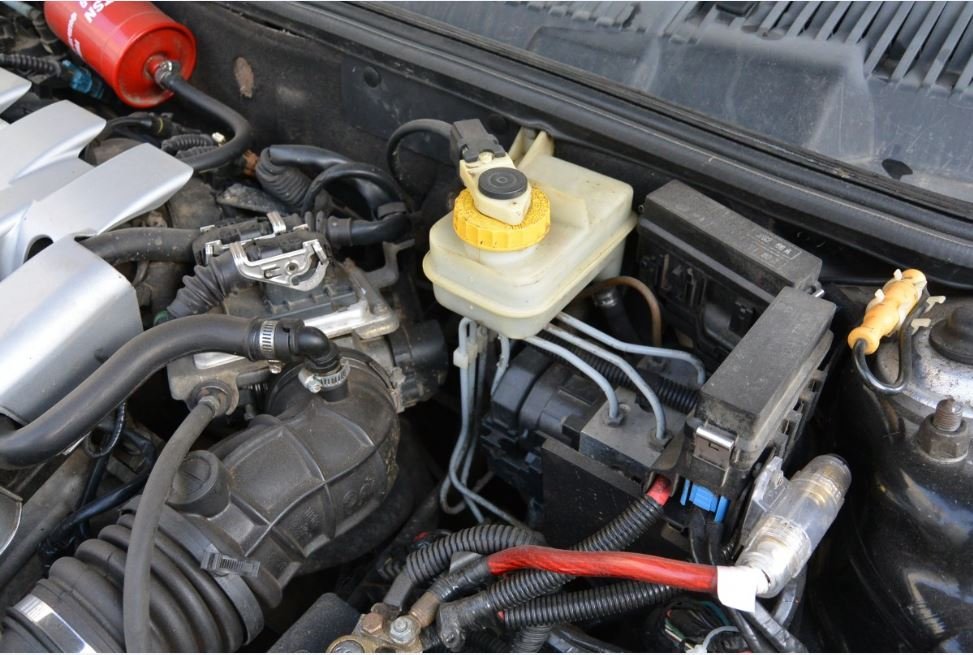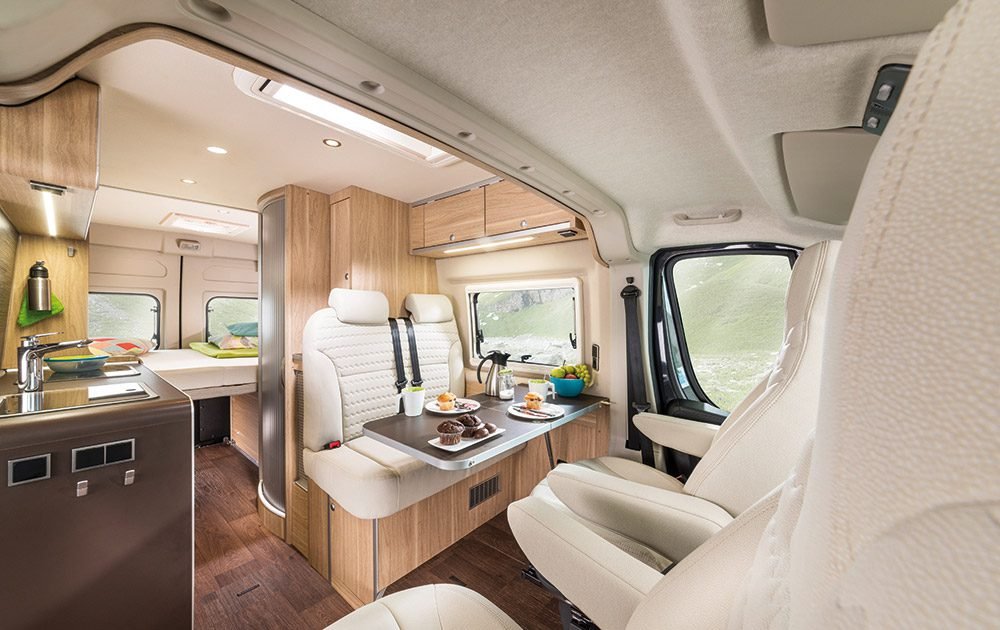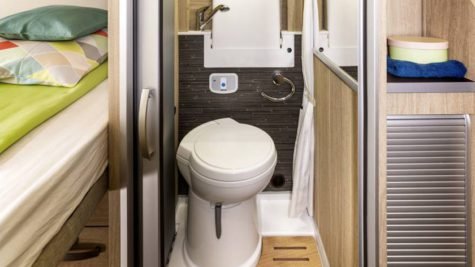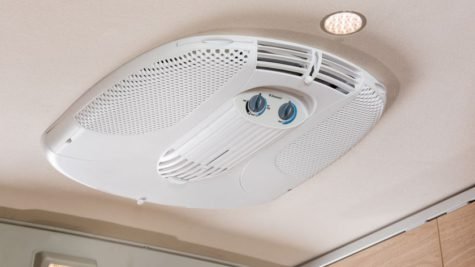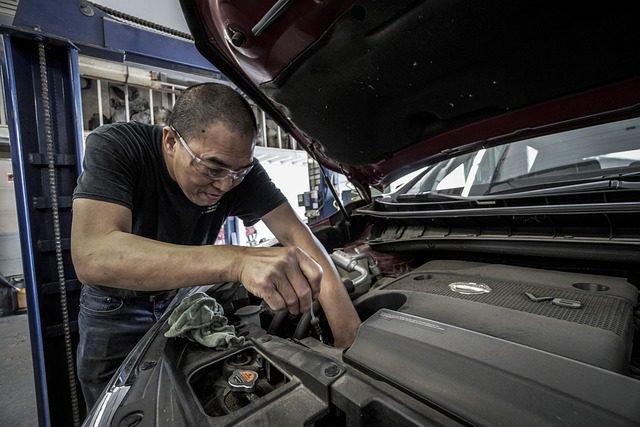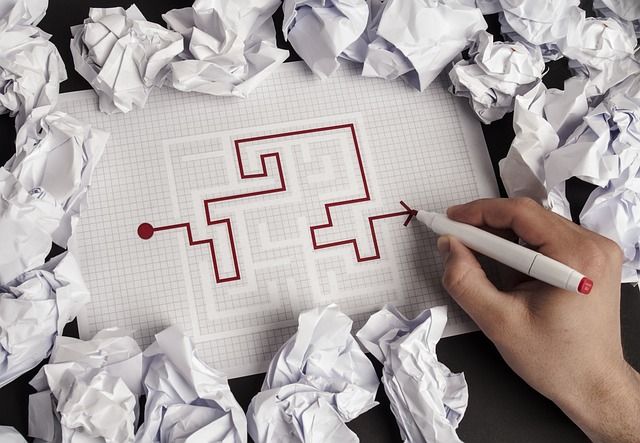The Secret to to Hassle-free Travel
Regular maintenance plays a crucial role in keeping your Class B RV in optimal condition. By implementing a practical maintenance routine, you can ensure the safety of your travels, extend the longevity of your vehicle, and save significant costs in the long run.
When it comes to Class B RVs, neglecting maintenance can lead to various safety issues, including mechanical failures and breakdowns on the road. By conducting regular inspections and servicing, you can identify potential problems early on and address them before they escalate, providing you with peace of mind during your adventures.
In addition to safety, proper maintenance also extends the lifespan of your Class B RV. Regularly checking and maintaining essential components such as the engine, electrical systems, tires, and plumbing ensures that your vehicle continues to perform at its best for many years to come.
One of the most significant benefits of maintaining your Class B RV is the potential cost savings. By investing in routine upkeep and following manufacturer guidelines, you can avoid costly damages that occur due to neglect. Preventative measures such as oil changes, filter replacements, and regular inspections are generally more affordable than dealing with unexpected breakdowns and major repairs.
Overall, a practical maintenance guide for your Class B RV is an indispensable resource that emphasizes the importance of regular servicing. By prioritizing maintenance, you can enhance the safety of your travels, extend the lifespan of your vehicle, and save significant costs in the long run.
 Safety and Emergency Preparedness
Safety and Emergency Preparedness
Ensuring the safety of yourself and your loved ones should always be a top priority when it comes to owning and maintaining your Class B RV. Implementing proper safety measures and being prepared for emergencies can make a significant difference in avoiding accidents or dealing with unforeseen situations on the road. Here are some essential safety and emergency preparedness tips for your Class B RV:
1. Maintaining and Testing Fire Extinguishers
A fire extinguisher is a crucial safety device that should always be present in your RV. Regularly inspect your fire extinguisher to ensure it is in good working condition and not expired. Follow the manufacturer’s instructions on how to perform the inspection and testing. Make sure everyone on board knows where the fire extinguisher is located and how to use it properly in case of an emergency.
2. Installation and Regular Maintenance of Carbon Monoxide Detectors
Carbon monoxide (CO) is an odorless and colorless gas that can be fatal if inhaled in high concentrations. Install carbon monoxide detectors in your RV, especially near sleeping areas. Test them regularly to ensure they are functioning correctly. Replace the batteries as needed and replace the detectors as recommended by the manufacturer.
3. Keeping a Well-Stocked First Aid Kit for RV Trips
A first aid kit is essential for any RV trip. It should contain basic medical supplies such as bandages, antiseptic wipes, adhesive tape, pain relievers, tweezers, and emergency contact information. Check your first aid kit regularly to restock any missing or expired items. Be familiar with the contents and how to use them.
4. Emergency Procedures While on the Road
Before hitting the road, familiarize yourself with emergency procedures specific to your Class B RV. Know how to safely pull over and secure your RV in case of a breakdown or mechanical issue. Keep a list of emergency contact numbers, including roadside assistance services. In the event of an emergency, remain calm and follow the necessary steps to ensure your safety and the safety of others.
Remember, practicing safety measures and being well-prepared for emergencies can significantly minimize the risks and enhance your overall RVing experience. Stay vigilant and prioritize safety to fully enjoy your Class B RV adventures!
Image from PxHere
Engine and Vehicle Systems
Understanding the components of the RV’s engine & vehicle systems
When it comes to maintaining your Class B RV, it’s important to have a good understanding of its engine and vehicle systems. By familiarizing yourself with these components, you can easily identify any potential issues and address them before they become major problems. Let’s take a closer look at some key components you should know about:
- Engine: The heart of your RV, the engine powers your vehicle and runs on either gasoline or diesel fuel. It’s crucial to regularly check the oil level, change oil and oil filters as recommended by the manufacturer, and keep an eye on the engine temperature.
- Transmission: Responsible for transferring power from the engine to the wheels, the transmission needs regular maintenance, including fluid checks and changes.
- Brakes: Your RV’s braking system is essential for safety. Regularly inspect the brake pads, rotors, and brake fluid levels to ensure optimal performance.
- Suspension: The suspension system helps provide a smooth ride. Periodically inspect the shocks, struts, and other suspension components for any signs of wear or damage.
- Tires: Proper tire maintenance is crucial for safety and fuel efficiency. Check the tire pressure regularly, rotate the tires as recommended, and make sure they are properly aligned.
Cooling system maintenance procedures & coolant replacement
Maintaining a healthy cooling system is vital to prevent overheating and engine damage. Here are some maintenance procedures to follow:
- Regularly check the coolant levels and top-up if necessary.
- Inspect the radiator and hoses for leaks or damage.
- Flush and replace the coolant as per the manufacturer’s guidelines.
- Ensure the radiator fan is functioning properly.
Fuel system maintenance, including fuel filters and additives
To ensure optimal performance of your RV’s fuel system, follow these maintenance tips:
- Regularly inspect and replace fuel filters as recommended by the manufacturer.
- Add fuel additives periodically to keep the fuel system clean and prevent issues caused by ethanol and other contaminants.
- Keep an eye on fuel tank ventilation to prevent vapor lock issues.
Electrical system inspection and troubleshooting techniques
The electrical system plays a crucial role in your RV’s functionality. Here’s how you can keep it in top shape:
- Regularly inspect the battery terminals and clean them if necessary.
- Check the battery voltage and charge it if needed.
- Inspect and tighten all electrical connections.
- Use a multimeter for troubleshooting electrical issues.
Exhaust system maintenance and emissions testing requirements
The exhaust system not only helps with the performance of your RV but also ensures compliance with emissions regulations. Here’s how to maintain it:
- Inspect the exhaust system regularly for leaks, rust, or damage.
- Replace any worn-out or damaged components.
- Ensure that your RV meets the emissions standards specific to your area by getting it tested
Interior Maintenance
- Cleaning and preserving amenities, appliances, and furniture: Keeping the interior of your Class B RV clean and preserved helps maintain its condition and prolong its lifespan. To ensure effective cleaning and preservation, consider the following:
- Use mild, non-abrasive cleaners appropriate for the materials in your RV.
- Regularly dust and vacuum to remove dirt and debris.
- Wipe surfaces with a damp cloth to eliminate stains and spills.
- Apply protective coatings, such as fabric or leather protectants, to upholstery and furniture to prevent staining and cracking.
- Occasionally deep clean carpets and upholstery using a steam cleaner or professional cleaning service.
- Clean and maintain appliances as per the manufacturer’s instructions.
Exterior Maintenance
- Cleaning, repairing damages, and weather protection: Proper exterior maintenance is vital for maintaining your Class B RV’s integrity and longevity. Here are some crucial maintenance tasks:
- Regularly wash and wax the exterior to protect the paint from fading and damage.
- Inspect windows, doors, roof, awning, slide-outs, and leveling systems for any signs of wear or damage. Promptly repair or replace as necessary.
- Maintain the seals around windows, doors, vents, and hatches to prevent water leakage.
- Use a gentle cleanser recommended for RV use and follow the manufacturer’s guidelines for cleaning the exterior, paying special attention to areas prone to mold and mildew.
- Repair any common exterior damages like scratches, dents, or cracks using suitable methods and materials.
- Use RV-specific covers when storing your Class B RV for extended periods to shield it from rain, snow, and UV rays.
- Apply UV protectant to the exterior surfaces to prevent fading and cracking due to sun exposure.
- Park in shaded areas whenever possible to minimize heat damage.
By performing these maintenance tasks regularly, you can ensure that your Class B RV remains in excellent condition and lasts for many years, providing you with countless enjoyable adventures.
Plumbing and Water Systems
Maintenance requirements for the RV’s plumbing system
Maintaining the plumbing system in your Class B RV is essential to ensure a smooth and hassle-free trip. Regular upkeep will prevent potential issues and keep everything in working order.
Regular inspection of water tanks, fixtures, and pipes
Inspecting your water tanks, fixtures, and pipes on a regular basis will help you identify any signs of wear and tear or potential leaks. Look for cracks, loose fittings, or any other visible damage that could lead to bigger problems down the road.
- Check the water tanks for any leaks or signs of corrosion.
- Inspect the faucets, showers, and toilets for proper functioning and any leaks.
- Examine the pipes for any signs of leaks, punctures, or loose connections.
- Ensure that all valves, including the water pump, are working correctly.
Winterizing the plumbing system and preventing freeze-ups
During the colder months, it is crucial to winterize your RV’s plumbing system to prevent freeze-ups. Freezing temperatures can cause significant damage to your pipes and fixtures.
- Drain all water from the tanks, pipes, and water heater.
- Use an RV antifreeze to protect the plumbing system from freezing.
- Insulate any exposed pipes or hoses to prevent them from freezing.
Tips for preventing leaks and troubleshooting common issues
Water leaks can be a common issue in RVs. Being proactive in preventing leaks and knowing how to troubleshoot common problems can save you time and money.
- Regularly check for leaks around faucets, toilets, and water lines.
- Ensure all connections are tight and secure.
- Use plumbing sealant or tape to fix any small leaks.
- If you encounter a major leak or plumbing issue, consult a professional to avoid causing further damage.
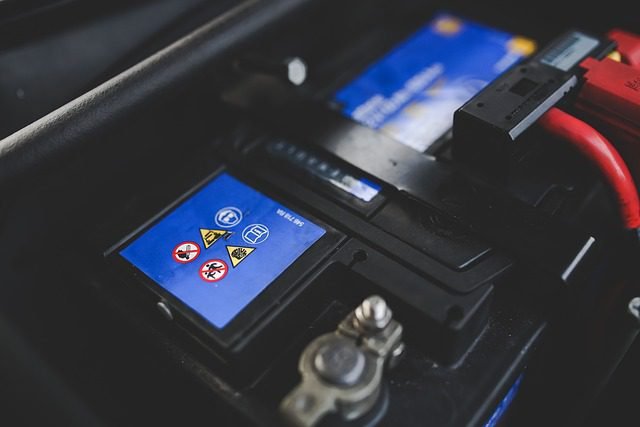
Electrical System and Appliances
Keeping your Class B RV’s electrical system and appliances in top shape is crucial for a comfortable and hassle-free travel experience. From battery maintenance to ensuring optimal performance of your appliances, here are some key maintenance tips:
Battery Maintenance, Charging Techniques, and Replacement
Your RV’s battery is the lifeline of your electrical system. Regular maintenance and proper charging techniques are essential to keep it in good condition.
- Inspect the battery regularly for any signs of corrosion, leakage, or damage. Clean the terminals if needed.
- Follow the manufacturer’s instructions for charging the battery. Overcharging or undercharging can lead to battery failure.
- If your battery is not holding a charge or is more than a few years old, consider replacing it with a new one.
Inspecting and Properly Securing Wiring Connections
Properly inspecting and securing wiring connections ensures a safe and reliable electrical system in your RV.
- Regularly inspect all wiring connections for any signs of wear, loose connections, or damage. Fix or replace any faulty wiring.
- Secure all wiring connections tightly to prevent them from coming loose during travel.
Generator Maintenance, Troubleshooting, and Fuel Considerations
Your RV’s generator provides power when you’re not connected to shore power. Here are some tips to keep it in good working condition:
- Follow the manufacturer’s maintenance schedule for your generator. Regularly check the oil, air filter, and fuel filter.
- If your generator is not starting or is running rough, consult the troubleshooting section of your RV’s manual or seek professional help.
- Use the recommended fuel type and consider adding a fuel stabilizer to prevent fuel-related issues.
Ensuring Optimal Performance of Appliances
Appliances like the refrigerator, air conditioner, microwave, and entertainment systems enhance your RV lifestyle. Here’s how you can keep them running smoothly:
- Regularly clean and defrost your refrigerator to ensure efficient cooling and prevent odors.
- Clean or replace air conditioner filters for optimal airflow and cooling efficiency.
- Inspect and clean the microwave, making sure it operates safely and efficiently.
- Regularly test and maintain your entertainment systems, including TVs, speakers, and satellite or cable connections.
Maintenance of Solar Panels and their Benefits for RVers
If your Class B RV is equipped with solar panels, proper maintenance can maximize their benefits:
- Clean the solar panels regularly to remove dust, debris, and any shading objects that can decrease their efficiency.
- Inspect the wiring connections and ensure they are secure and free from any damage.
- Take advantage of solar power to reduce your dependence on electrical hookups and save energy while enjoying the freedom of off-grid camping.
Heating, Ventilation, and Air Conditioning (HVAC)
In order to keep your Class B RV comfortable year-round, it’s essential to properly maintain the heating, ventilation, and air conditioning (HVAC) system. Here are some key maintenance tasks to keep in mind:
Maintaining the Furnace, Air Conditioning Unit, and Vents
Regular maintenance of your RV’s furnace, air conditioning unit, and vents is crucial for optimal performance. Make sure to:
- Clean the furnace regularly to remove any debris or dirt that could hinder its functionality.
- Inspect the air conditioning unit’s coils and fins to ensure they are clear of dust and debris, and clean as necessary.
- Check the vents for any blockages or obstructions that may restrict airflow, and clean them if needed.
Cleaning and Replacing Air Filters Regularly
Properly functioning air filters are essential for maintaining good indoor air quality and maximizing the efficiency of your HVAC system. Follow these steps:
- Regularly clean and inspect the air filters to remove any dirt or debris.
- If the filters are damaged or excessively dirty, replace them with new ones. It’s recommended to replace them at least once every three months.
Troubleshooting HVAC Issues & Knowing When to Seek Professional Help
While regular maintenance can prevent many HVAC problems, issues may still arise. Here’s what you can do:
- If you encounter any problems with your furnace, air conditioning unit, or vents, consult your RV owner’s manual for troubleshooting tips.
- If the issue persists or if you’re unsure about performing repairs, it’s best to seek professional help from an HVAC technician who specializes in RV systems.
By following these maintenance tips and staying vigilant about the health of your HVAC system, you can ensure a comfortable and enjoyable experience in your Class B RV, no matter the season.
Image by Ryan Doka from Pixabay
DIY Maintenance vs. Professional Servicing
When it comes to maintaining your Class B RV, you have two options: DIY maintenance or professional servicing. Both have their advantages and disadvantages, and it’s important to consider various factors before making a decision.
Pros and Cons of DIY Maintenance Tasks
DIY maintenance tasks offer several benefits. Firstly, they are often more cost-effective compared to hiring a professional. By performing regular maintenance on your own, you can save money in the long run.
Additionally, DIY maintenance allows you to have full control over the process. You can ensure that the tasks are done to your satisfaction and according to your specific needs.
However, there are some downsides to consider as well. DIY maintenance requires knowledge, skills, and experience. If you’re not confident in your abilities, you may end up causing more harm than good. It’s important to thoroughly research and understand the task before attempting it.
Identifying Maintenance Tasks Best Left to Professionals
While many maintenance tasks can be done by RV owners themselves, there are certain aspects that are best left to professionals. These tasks include complicated engine repairs, electrical system diagnostics, and major plumbing repairs.
Professional RV technicians have the expertise and specialized tools to handle complex maintenance tasks. They can diagnose issues accurately and provide effective solutions, giving you peace of mind knowing that your RV is in capable hands.
Factors to Consider When Choosing Between DIY and Professional Servicing
When deciding between DIY and professional servicing, consider the following factors:
- Time and availability: DIY maintenance requires time and effort. If you have a busy schedule or limited availability, professional servicing may be a better option.
- Skills and experience: Evaluate your own skills and experience in RV maintenance. If you’re confident and knowledgeable, DIY may be suitable. Otherwise, it’s best to rely on professionals.
- Budget: Consider your budget for maintenance. DIY tasks may save money, but complex problems may require professional intervention.
- Warranty and insurance: Check your RV’s warranty and insurance policies. Some warranties may require professional servicing to remain valid.
Ultimately, the decision between DIY and professional servicing depends on your comfort level, availability, budget, and the specific maintenance task at hand.
Troubleshooting and FAQs
Common issues faced by Class B RV owners and their solutions
- 1. Problem: Water leaks in the RV Solution: Check for loose or damaged seals around windows, roof vents, and plumbing connections. Use appropriate sealant or repair products to fix any leaks.
- 2. Problem: Electrical issues Solution: Start by checking if the circuit breaker has tripped. If not, inspect the wiring for any damage or loose connections. Consider seeking professional help if the problem persists.
- 3. Problem: RV battery not charging Solution: Check the battery connections and terminals for corrosion. Clean or replace them if necessary. Also, ensure that the battery charger or converter is working properly.
- 4. Problem: Refrigerator not cooling Solution: Make sure the RV is level, as an unlevel surface can affect the fridge’s efficiency. Check if the fridge’s ventilation is blocked or if there are any obstructions in the cooling system. Clean the fridge’s coils and vents regularly.
- 5. Problem: Awning won’t retract Solution: Examine the awning for any obstructions or debris. Check the tension on the awning arms and make sure they are properly aligned. If needed, apply lubrication to the awning parts.
Step-by-step troubleshooting guide for addressing common problems
When faced with common issues in your Class B RV, follow these steps to troubleshoot and resolve them:
- Identify the problem by observing and understanding the symptoms.
- Consult the RV owner’s manual for any specific troubleshooting instructions related to the issue.
- Check the relevant systems or components for any visible damage, loose connections, or other issues.
- Perform basic maintenance tasks such as cleaning, lubricating, or tightening connections as needed.
- If the problem persists, conduct further research online or seek help from RV forums and communities.
- Consider contacting a professional RV technician if you are unable to resolve the problem on your own.
Frequently asked questions related to Class B RV maintenance
-
- Q: How often should I change the engine oil in my Class B RV?
A: It is generally recommended to change the engine oil every 3,000 to 5,000 miles or as advised by the vehicle manufacturer.
-
- Q: Can I use regular household cleaning products for my RV’s interior?
A: It is best to use RV-specific cleaning products to avoid damage to the surfaces and materials in your Class B RV.
-
- Q: How often should I flush and sanitize the RV’s water system?
A: It is recommended to flush and sanitize the water system at least once a year or whenever you notice an odor or taste issue.
-
- Q: Do I need to winterize my Class B RV?
A: Yes, winterizing your RV is crucial to prevent damage from freezing temperatures. Follow the manufacturer’s instructions or consult a professional for the correct winterization procedure.
-
- Q: Can I perform DIY repairs on my RV’s electrical system?
A: Unless you have experience and knowledge in working with electrical systems, it is safer to leave electrical repairs to a professional RV technician.
Conclusion
Regular RV maintenance is essential for keeping your rig in top condition and ensuring safe and enjoyable travels. By following the tips and advice in this post, you can learn how to perform basic maintenance tasks yourself, or you can hire a professional to do it for you. No matter which route you choose, regular maintenance will help you extend the life of your RV and avoid costly repairs down the road.

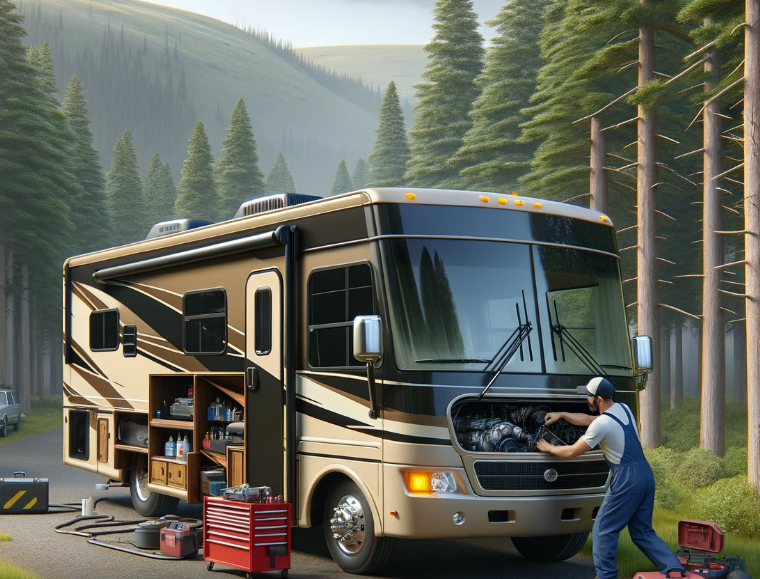
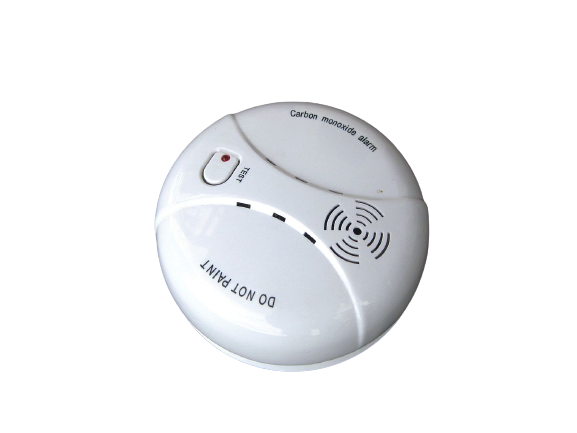 Safety and Emergency Preparedness
Safety and Emergency Preparedness